His parents think he’s ‘a disgrace’, but this scrap collector in China is on a mission
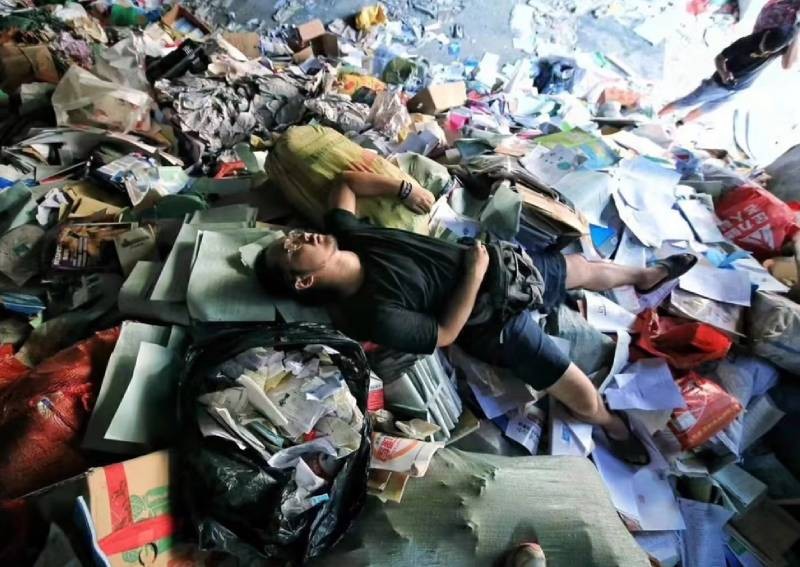
“My parents think I am a disgrace,” said 27-year-old Wu Kaisi. “Being famous for collecting scraps is as disgraceful to them as being famous for running naked in the streets.”
Wu first captured the imagination of people in China in 2014, when he walked over 1,800km from Guangzhou to Chengdu in only a pair of slippers. But, it is his scrap collecting that has become a career and made Wu somewhat famous across China.
One of the reasons Wu has drawn so much attention is that, as a young college graduate, he does not seem to fit the typical profile of someone who collects “trash” for a living. Six years ago, Wu completed his degree at the law school of the prestigious South China University of Technology in Guangzhou.
“My parents always wanted me to be a civil servant or work in the system, as many parents do in traditional northern Chinese families,” Wu said.
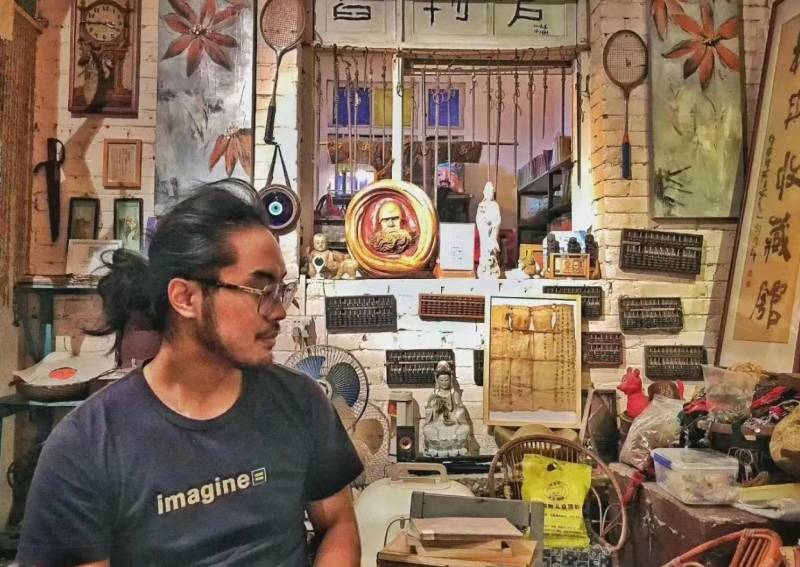
PHOTO: Wu Kaisi
Instead, these days the Shanxi native can often be found digging through heaps of discarded items, or treasure hunting at the local flea markets near his home in Guangzhou, the capital city of Guandong province in southern China, on Saturday mornings and Monday evenings.
But Wu says this is more than just a way to make money for him: he is trying to build a culture in China that accepts and embraces second-hand commerce, like the flea markets and garage sales that flourish in other parts of the world.
A seed planted by a holiday
Wu’s passion for collecting scraps and second-hand items was sparked by a two-month trip to the US during his senior year of university in 2015.
“I spent no money on accommodation because I could find places to stay at an airport, a bus station, a park, or by couchsurfing,” Wu recalled.
Because of his spartan-style travel plan, it was challenging to find a laundry facility. So, Wu turned to local flea markets to buy his necessities, such as 50-cent shirts and trousers that he could easily throw away after they became dirty.
While he was amazed at how American second-hand markets were prospering — yard sales, flea markets, and vintage shops were a big part of the culture — Wu began to wonder why he had not come across anything similar in China.
“I had lived in China for over 20 years and had learned nothing about flea markets,” Wu explained. “There is almost no information about flea markets on the Chinese internet.”
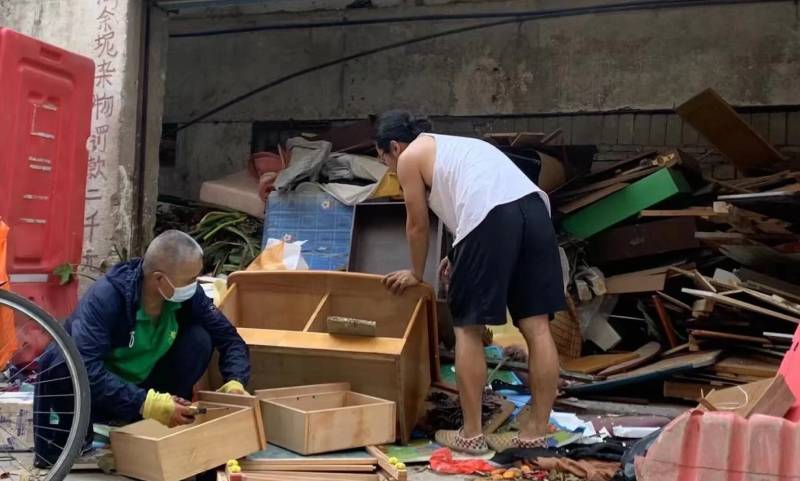
PHOTO: Wu Kaisi
When Wu returned to China in 2015, he began looking for flea markets in Guangzhou, where he lived.
However, the most recent advertisement he could find was from 2007, eight years earlier, with a person commenting that the market had already closed.
Instead of being discouraged by the results, Wu began a broader search and found 30 more informal locations, such as behind a specific hotel or near a bus station, and spent three weeks visiting them one by one. By the end of his search, he had discovered a dozen relatively vibrant flea markets in Guangzhou.
“My whole body got goosebumps the first time I saw the flea market; I was immediately immersed in it, as if there was a magic attracting me. At that moment, I felt as if I was home,” Wu recalled.
Wu was raised in a low-income family, where most of his household items were second-hand.
“Many items in my house, such as the television and gas stove, as well as all of the cellphones I have used, were all second-hand,” Wu explained.
He readily acknowledges the problem with second-hand gear. His television, for example, had a tendency to break down, and the gas stove required using a lighter to ignite.
These inconveniences, however, are now sweet memories for Wu, reminding him to be thrifty in his life and contributing to his special bond with flea markets.
During his senior year at university, Wu developed a hobby of collecting old items after many tours of Guangzhou’s flea markets.
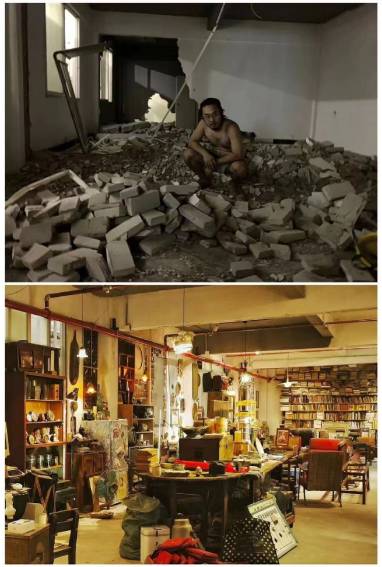
PHOTO: Wu Kaisi
His storage space evolved from his dormitory room to a 20 sq m green-brick old house, then to a 50 sq m place, and finally to a 300 sq m old garage.
Wu transitioned from a collector to a seller because he needed to make a living after graduation.
“At first, I was hesitant to sell, but as time went on, I realised that ‘seeing it is getting it’,” Wu said, meaning that he did not have to hold on to an item forever to enjoy it. “I became more comfortable selling the items.”
Now, the hobby has transformed into a full-blown business, and Wu often pockets between 10,000 to 15,000 yuan (US$1,500 to US$2,300) (S$2,047 to S$3138) per month.
The garage, known as the “Yongxu Old Item Warehouse”, is located in a business district of Guangzhou and is open to the public. To deter those who do not genuinely love old items, there’s a 9 yuan (US$1.40) fee for entering the Warehouse.
Rekindling a woman’s old memories
The job has allowed Wu to meet many people and hear many interesting stories over seven years.
He recalls purchasing a bag of letters that belonged to a woman named Zhu Min. The bag contained letters she had received as a child and into her adulthood. It was like peering into a large chunk of someone’s life.
“Some of those letters were wet from rain and had yellowed over the years,” Wu explained, “but most them have been preserved.”
“By reading the letters, I was able to determine that the lady was a foreign language graduate of Sun Yat-sen University in 1986, and later worked at the White Swan Hotel.”
Wu shared a photo of the letters on his social media platform, which Zhu discovered by chance, and she then contacted him to ask if she could buy them back.
Wu then invited Zhu to his warehouse and gave her the items back for free.
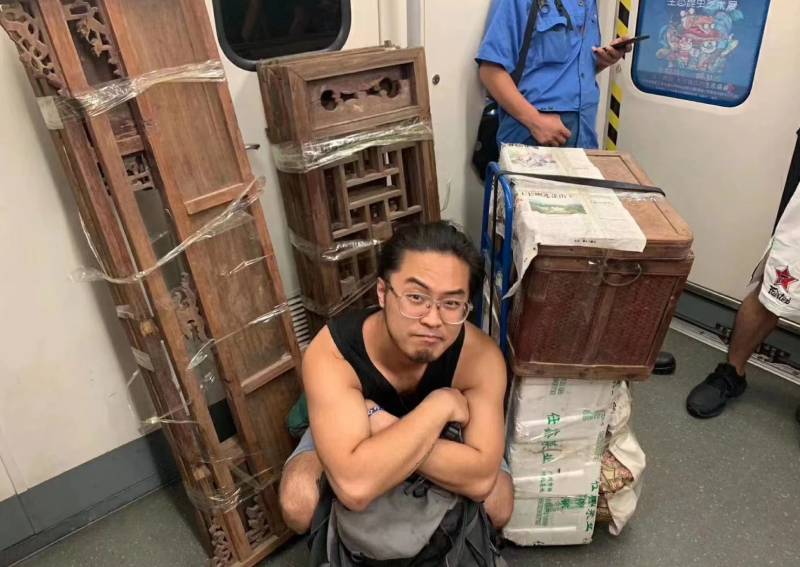
PHOTO: Wu Kaisi
Wu said that Zhu told him: “This letter was written to me in junior school by my best friend, and this letter was written to me by my father.”
Wu said he likes to collect letters but never sells them.
“These memories are priceless and cannot be measured in terms of money,” Wu said. “It is a great blessing when I can return them to their rightful owners.”
The next one is always the best one
Many people find Wu based on his fame or referrals from friends. Some people even invite Wu to their homes to sort through the belongings of recently deceased family members, which is considered bad luck in Chinese culture.
“I think death is the most natural thing in the world, and I do not mind taking the items,” Wu said. “There are memorial tablets, tombstones, and even urns in my collection.”
Wu collects items based on their craftsmanship, materials, design, and history, and he claims that, after years of practice, he can tell whether an old object is collectable or not within three seconds. Aside from that, he collects things based on “whether it strikes a chord in his soul at that moment”.
He also hunts for items for his daily life, rummaging through garbage bins and scraps to collect living necessities such as shirts, socks, shoes, shampoos, and soaps. He claims he has not bought any new clothing since his junior year of university.
“Hundreds of thousands of old things have passed through my hands in seven years, and, if there is one I cherish the most, it will always be the next one because it gives me a desire to explore,” Wu said.
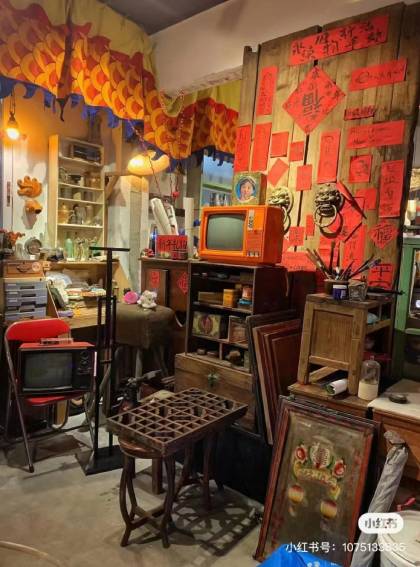
PHOTO: Wu Kaisi
Wu’s ambition is to visit flea markets around the world and learn from other countries how to develop a Chinese flea market culture.
“I believe China’s used goods market is still in its infancy, trailing Western countries by 40 to 50 years,” Wu said.
In Wu’s opinion, what he is doing is more than a pastime, and he hopes the culture can catch on because he believes it would benefit the entire country, “because China still has a large number of poor people who may need cheap goods”.
While Wu’s parents may not approve of his choice in life, the entrepreneur is confident he has found the right path.
“Old items can record a city’s changes and serve as proof of its history,” Wu said. “I find what I am doing to be meaningful because I can get things into the hands of people who need them.”










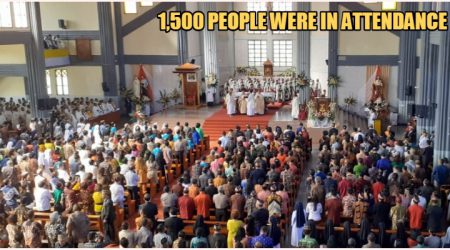
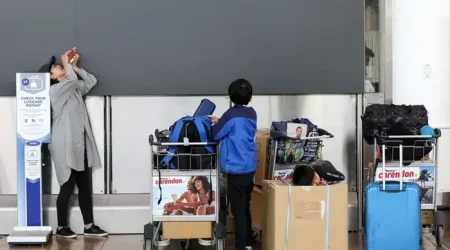
Leave a Reply